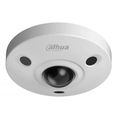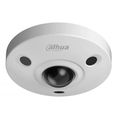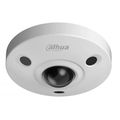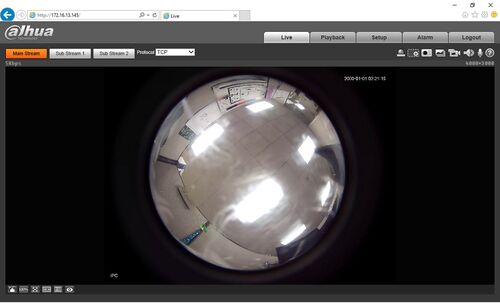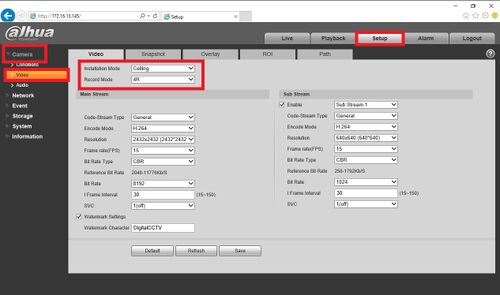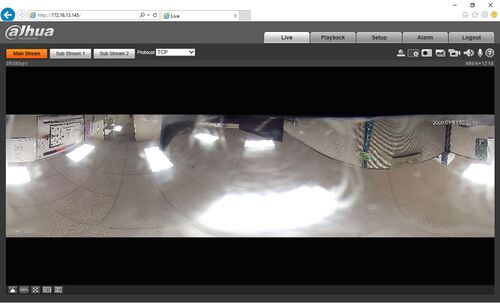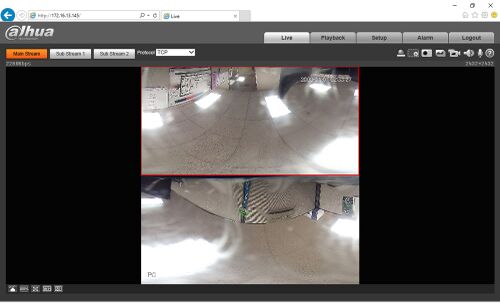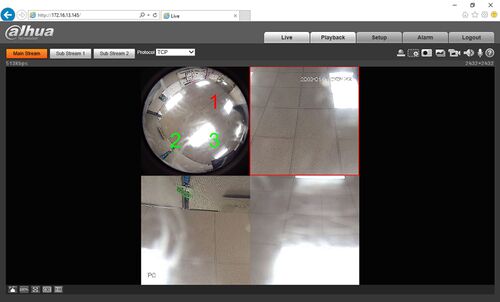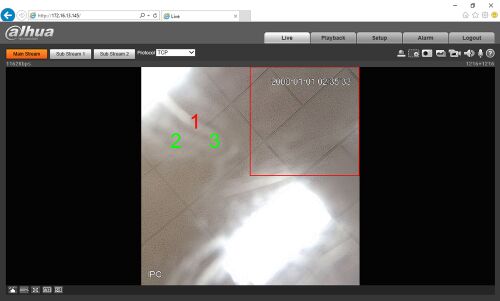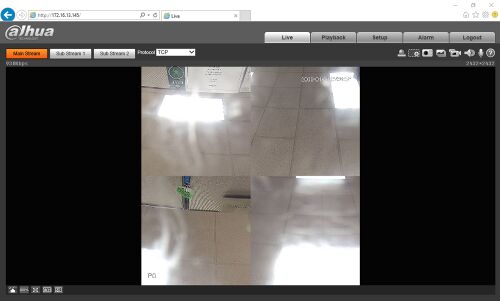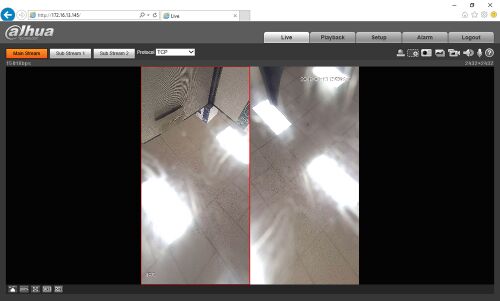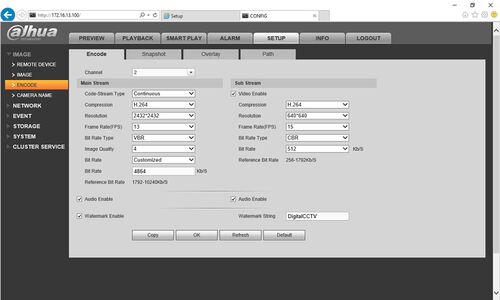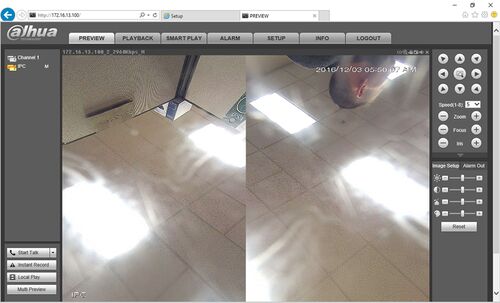Difference between revisions of "Fisheye/On Board Dewarping"
(→Prerequisites) |
(→Step by Step Instructions) |
||
| Line 20: | Line 20: | ||
1. Log into the camera and install the new WebRec plugin for this device. | 1. Log into the camera and install the new WebRec plugin for this device. | ||
| − | [[File: | + | [[File:onboarddewarp007.jpg|500x500px]] |
2. Navigate to Setup->Image->Encode menu select the orientation of your mount under installation mode (Ceiling, Wall, Ground). | 2. Navigate to Setup->Image->Encode menu select the orientation of your mount under installation mode (Ceiling, Wall, Ground). | ||
Revision as of 18:22, 5 December 2016
Contents
How To Dewarp Fisheye On Board
Description
A newer revision of firmware will enable your fisheye to dewarp onboard and then send the video stream to any device without post processing. This can be useful in video management environments that cannot dewarp these devices. Follow these instructions to find out how this function works.
Prerequisites
- Windows PC or Laptop
- Clear WebRec files
- DH-IPC-EBW812A0N(I) or DH-IPC-EBW86A0N(I) with onboard dewarp firmware (disables IVS):
Video Instructions
Step by Step Instructions
1. Log into the camera and install the new WebRec plugin for this device.
2. Navigate to Setup->Image->Encode menu select the orientation of your mount under installation mode (Ceiling, Wall, Ground).
3. Below are screenshots of how the record modes look:
- 1O
- 1P
- 2P
- 1O+3R
- 1R
- 4R
- 2R
4. Now add the camera like a normal IP camera to your NVR, and notice that you can change every setting in the encode menu except the dewarp mode. The onboard dewarp setting must be configured directly through the camera's webGUI.
5. Here is an example of this feature being used on an NVR.
